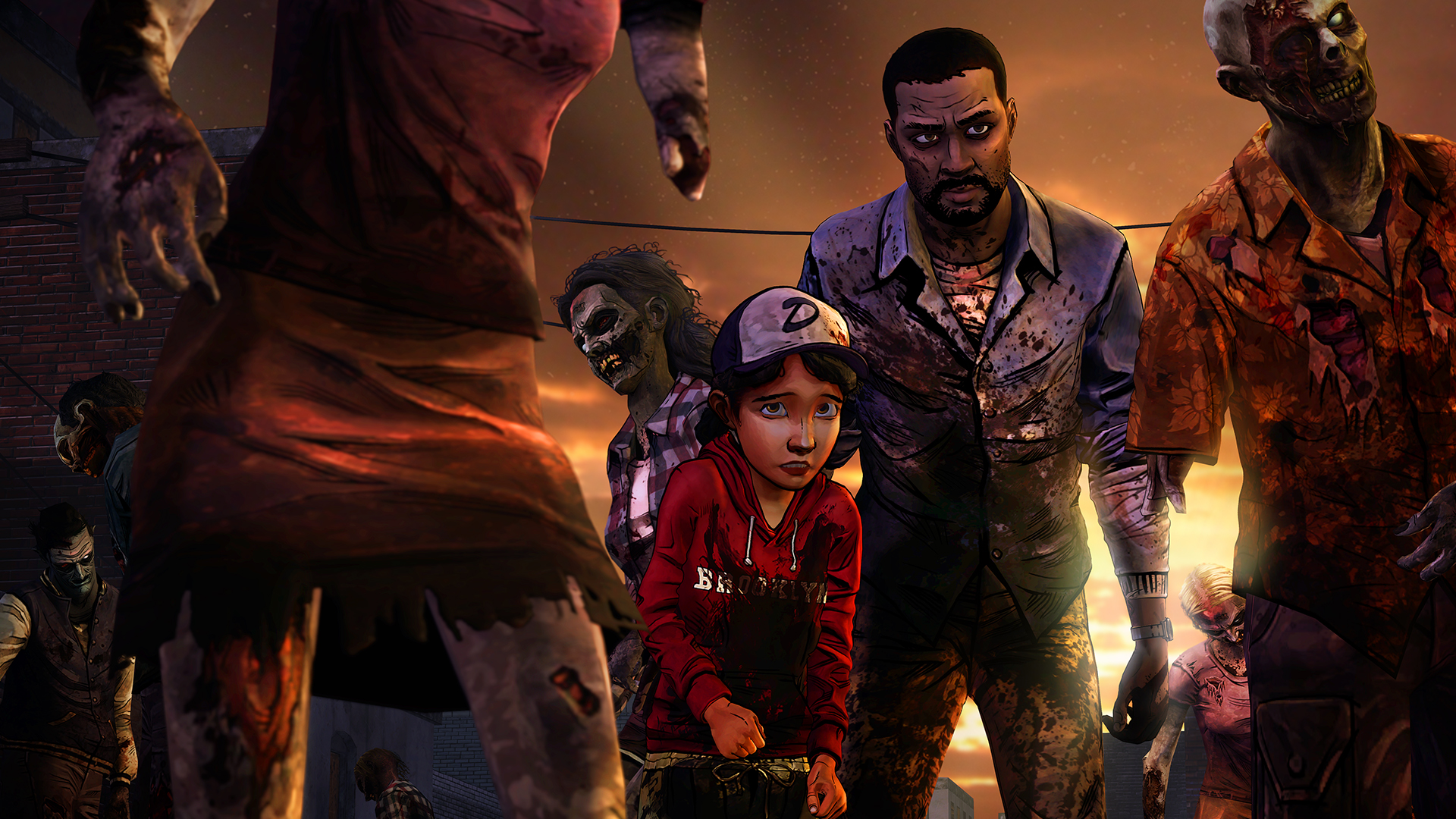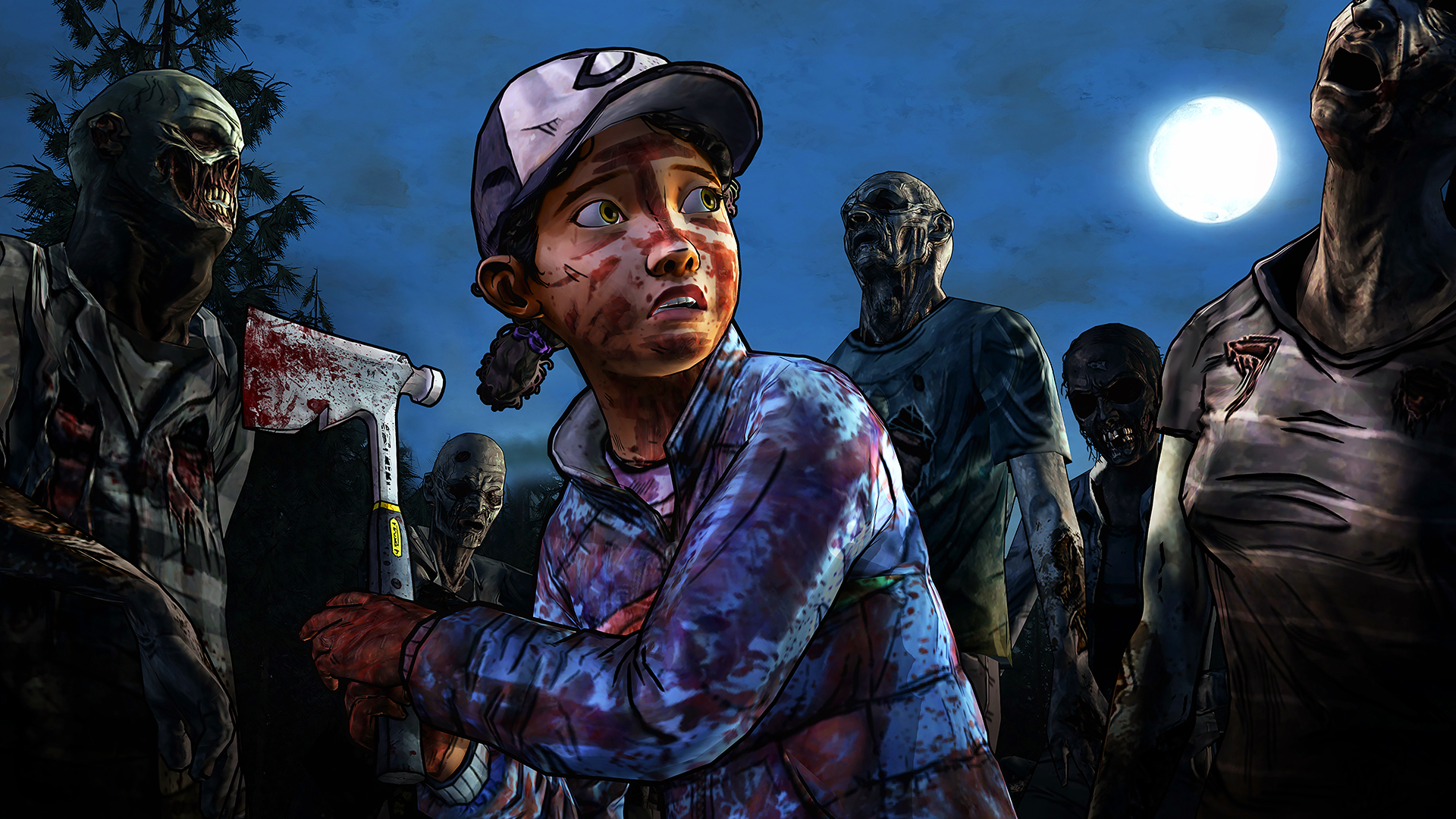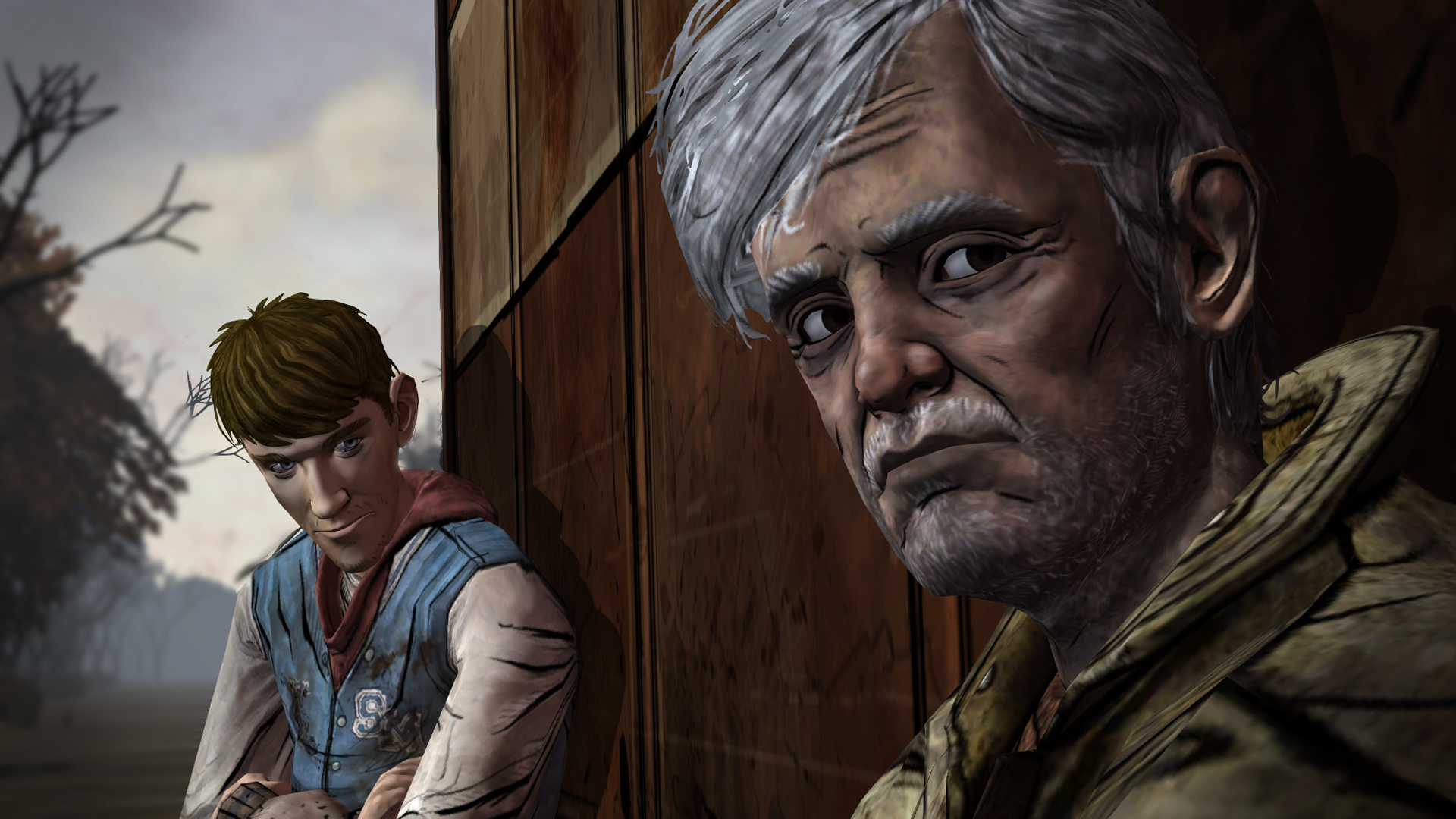Telltale's The Walking Dead only came alive when I played it with friends
Chew the fat

When I finished playing The Walking Dead, I sat back and felt satisfied I'd made all the right choices. My Lee had done their best to guide the eight-year-old orphan Clem through a zombie apocalypse, teaching her how to survive but not forget to be kind.
When I had been given a choice to steal a stranger's food, I'd refused; when I could leave someone who had wronged me to die, I saved his life; and when I was bitten, I shared the news with my group immediately, not wanting to risk turning into a zombie behind their backs.
Sure, when I completed an episode, my screen told me what percentage of players had made a different choice, but to me, they weren't real players. They were just a stat. For all I knew, it was just a fake number, one to suggest the choices in the game were ones of grey, but I knew I had made all the right choices and got top marks in the apocalypse. Until I watched my friend Helen play.
The road untraveled

I'd been talking about the game at a party and, as a big fan of the TV series, Helen wanted to try it for herself. She didn't play games, so when she came around and we got The Walking Dead up on the big screen, I stayed with her to answer questions and give hints if she needed them. So I sat there as she played through episode one and made every opposite decision to me.
After the credits rolled, I walked Helen home, and we talked about why we'd made our choices. We went through each decision in episode one in detail. Both arguing the case for mercy over justice, for kindness over pragmatism.
The next night Helen came around again, and again she made all different decisions to me; again, I walked her home, and again we could both completely and honestly justify our choices.
We went through each decision in episode one in detail, arguing the case for mercy over justice, for kindness over pragmatism
By the time she finished her playthrough of season one, I had a new appreciation for Telltale's The Walking Dead. How the developers had balanced and supported the choices, such that players could walk wildly different paths and still consider themselves heroes at the end. Our choices weren't between good and bad, but different versions of ‘right’.
Sign up for breaking news, reviews, opinion, top tech deals, and more.
The writing of The Walking Dead has often been praised for this balancing of choices. But, what struck me, was the discussion that breaking the story up into episodes allowed.
A breather

As the episodes only took a few hours to complete, if the game had been one unbroken campaign, Helen would likely have played much further into the campaign on that first night. So, when we were done, there would have been too many decisions to discuss, and we may not have talked as deeply or as thoroughly. Knowing the episode’s ending was coming up, I wasn’t tempted to interrupt her playing to comment on her choices; I could hold my tongue, knowing we could talk about it after she was done.
While it may seem natural for a game adapted from a TV series to be released episodically, nothing dictated that it had to be, and few games were released piecemeal in this way. The staggered release will have had production benefits, letting The Walking Dead grow its audience from episode to episode, allowing Telltale to earn money as it was still developing the game, and allowing the team to incorporate player feedback into later episodes in the series. Still, the more significant benefit is to the players.
A gap between chapters of a game may seem minor, but it allowed me to play a game in a new way
With The Expanse: A Telltale Series – confusingly developed by Life Is Strange: Before The Storm studio Deck Nine – that opportunity for discussion may have been enhanced. There would sometimes be months between episodes of Telltale’s games, making it too easy to lose the story thread and encouraging waiting for the whole series to release before actually playing. Deck Nine has completed the entire series of The Expanse and will release a new episode regularly every two weeks, giving us a clear expectation of when to continue the story and schedule conversations with our friends about our choices.
A gap between chapters of a game may seem minor, but it allowed me to play a game in a new way. Despite it being single-player, after watching my friend play, it made it almost collaborative. It clarified what had driven my choices, highlighting that they were, in fact, choices and not the way to play The Walking Dead.

Julian's been writing about video games for more than a decade. In that time, he's always been drawn to the strange intersections between gaming and the real world, like when he interviewed a NASA scientist who had become a Space Pope in EVE Online, or when he traveled to Ukraine to interview game developers involved in the 2014 revolution, or that time he tore his trousers while playing Just Dance with a developer.